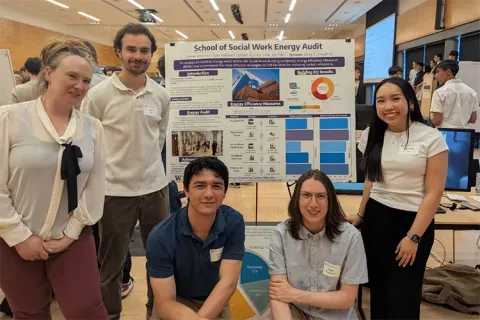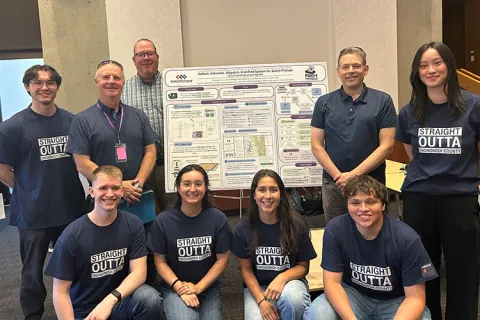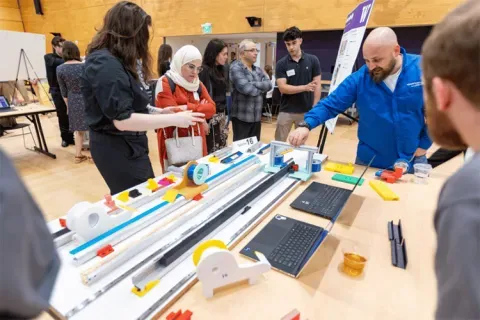Boeing
Inclusive Design and Accessibility in Aerospace
Motivation: The aerospace industry plays a crucial role in connecting people and goods across the globe. However, there are significant challenges related to accessibility that hinder the full participation of diverse user groups in aerospace travel. To address this issue, a multi-disciplinary team of engineering students, specializing in human-centered design, human factors, mechanical engineering, software engineering, and other relevant engineering departments, will collaborate on a university capstone project. The team will be guided by a mentor from Boeing, aiming to develop innovative solutions that not only improve accessibility in aerospace, but push solutions beyond ideas the company has already explored. 1. Performance Criteria: (a)Humane Interface -People want to interact with and use the solution. It's useful, accessible, safe, healthy and effective. It prevents injury and promotes safety. (b) Diversity & belonging - Solution can be used by a wide range of people, empowers diverse range of people to participate. Improves aerospace accessibility for people living with disabilities. (c) Repeatability at scale - The solution can be replicated and repeated, scaled and expanded to reach many people and areas of aerospace industry. (d)Sustainability - Solution is sustainable and easily maintained (e) Cost effective - Solutions that are cost prohibitive may not be used or feasible. This student team will work to deliver tangible user experience outcomes that contribute to measurably enhance accessibility in aerospace for people with disabilities. Students may prototype designs, software applications, follow industry guidelines and regulations with guidance of Boeing, and make recommendations for policy improvements. The project will provide valuable insights and actionable recommendations to Boeing and the aerospace industry as a whole, fostering a more inclusive and accessible environment for all users. Some examples of possible deliverables to achieve the desired outcomes are: (1) accessibility assessment, (2) conceptual design (3) software applications (4) testing and validation reports (5) policy and recommendations (6) final project report
Faculty Adviser(s)
Alan Marks, Human Centered Design & Engineering
Related News

Mon, 10/13/2025 | UW Mechanical Engineering
Capstone collaboration leads to award
An ME capstone team received first place for its energy audit of the UW School of Social Work building.

Thu, 07/17/2025
UW engineering students develop smart ballot solution
UW engineering students develop smart technology solution to improve ballot collection for Snohomish County.

Mon, 07/07/2025 | UW Mechanical Engineering
Capstone creations
Students displayed innovative capstone design projects at the 2025 expo.

Fri, 09/20/2024 | UW Civil & Environmental Engineering
Smarter irrigation for a greener UW
A new project combines satellite data with ground sensors to conserve water and create a more sustainable campus environment.